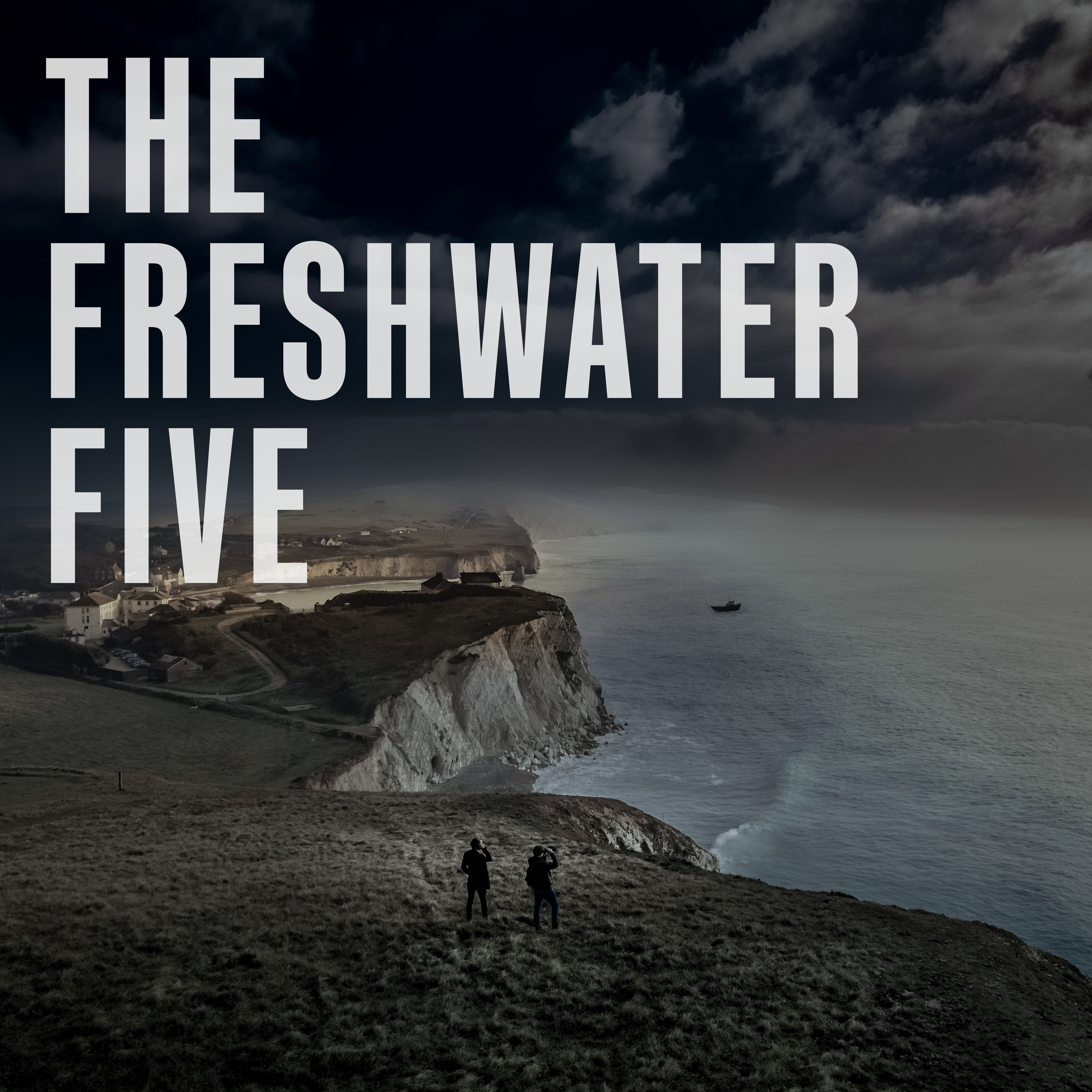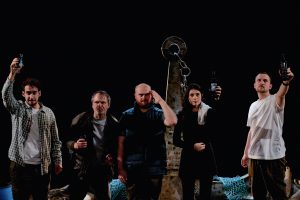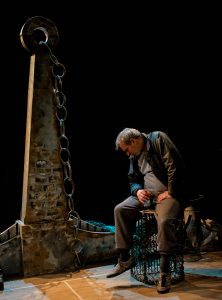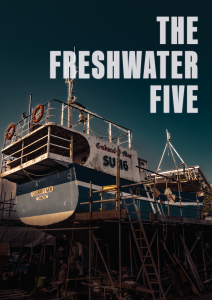THE AMAZING CASE OF THE FRESHWATER FIVE – LIVE AT THE EXCHANGE, TWICKENHAM



The remarkable story of five men who claim they were wrongly jailed for a total of 104 years at Kingston Crown Court in 2011 for a £53m drug smuggling operation can be seen at Twickenham’s Exchange venue next month (Saturday, May 11th)
The men, known as Freshwater Five, were accused of picking up a stash of drugs mid-Channel and depositing them in the waters of Freshwater Water Bay, on the Isle of Wight.
Scaffolding business owner Jonathan Beere, fishing boat skipper Jamie Green and Montenegro-born crew member Zoran Dresic were each handed down 24 years’ imprisonment, while fishermen Daniel Payne and Scott Birtwistle received 18 and 14year sentences respectively.
Fresh from a sell-out coastal communities tour in 2023 award-winning Isle of Wight company Deadman is bringing the compelling production on a wider tour to audiences like Twickenham where tickets cost between £12 and £14.
Four of the men were said to have collected the drugs from the English Channel in a fishing boat, the Galwad-Y-Mor, in May 2010.
Beere, 51, who ran a scaffolding company in Ryde, was alleged to have acted as a liaison between Green, the skipper of the Galwad who was also jailed for 24 years, and those organising the smuggling.
Only one of the men Zoran Dresic – is still in prison in Montenegro. The men have tried to challenge their convictions via the Criminal Cases Review Commission and the Court of Appeal but without success – but they are not giving up their fight. The Court of Appeal said there was insufficient evidence to quash the convictions but the men and their families continue their campaign to clear their names.
The case, involving a joint operation between the Serious Organised Crime Agency and the Metropolitan Police, is now in front of the Independent Office for Police Conduct after the Court of Appeal made a factual finding inconsistent with what the police watchdog had previously found.
At their trial in 2011, Kingston Crown Court heard the Galwad crossed the path of the Oriane, a container ship sailing from Brazil, and inferred from it slowing down that it was collecting the cocaine.
At about midnight, the ship and the fishing boat briefly came close together. The ship went on towards the European mainland, and the Galwad continued home to Yarmouth, past Freshwater Bay.
On the way it drifted up and back with the tide in Freshwater Bay — the crew said they were fishing for mackerel.
The next day, in the bay, a member of the public spotted 11 sacks tangled around a buoy. Each was found to be packed with a pure form of cocaine.
The prosecution’s case was that the sacks were pushed off the side of the container ship for the fishermen to retrieve from the sea, before taking them to the bay to hide or be picked up by another vessel.
The prosecution also pointed to a series of calls made to and from the satellite phone on the Galwad while it was in the Channel, suggesting someone was co-ordinating the drugs drop.
At the time the fishing boat was in Freshwater Bay, the afternoon before the drugs were found, two officers from Hampshire police were said to have been watching from the cliff tops as part of the SOCA (Serious Organised Crime Agency) operation.
In a log written before the drugs were found, the loggist recorded that the clifftop officers called in that they saw the fishing boat jettisoning six or seven items overboard at intervals. ( The men said that only thing that could have been disposed of overboard on the trip would be rubbish such as bait boxes. )
But the next day, after the drugs were discovered, the police lookouts changed the official log — which they were allowed to do — to clarify what they saw.
In the new version they reported ten to 12 items the size of a holdall, tied together in a line and deployed from the boat followed by a red floating buoy. This new description almost exactly matched the drugs that were picked up by the police boat.
The Court of Appeal heard in February 2021 from experts that new radar evidence showed “the Galwad never crossed behind the Oriane”, meaning it was “simply impossible” for them to have collected the drugs.
But in the court’s ruling, Sir Julian Flaux – sitting with Mr Justice Andrew Baker and Mr Justice Calver – said there had been a “compelling prosecution case of conspiracy to import cocaine”.
“he grounds of appeal do not begin individually or collectively to cast doubt on the safety of these applicants’ convictions,” the judgment said.
“The applications for leave to appeal conviction are accordingly refused, as are the applications for an extension of time and to adduce fresh evidence.”
Solicitor Emily Bolton, who is founder of the charity APPEAL which had championed the men’s case, said it was “yet another failure to correct a miscarriage of justice”.
“There is no dispute that this is a case in which law enforcement and the prosecution failed to hand over crucial evidence to the defence at trial,” she said.
“As we showed in the court hearing, that new evidence undermines the prosecution’s case on several fronts and gives a totally different picture to that which was presented to the jury.”
In a joint statement, the men’s families said it was a “bitter and dark day” and a “pitiful judgement”.
“These men are innocent and have collectively spent decades in prison for a crime they did not commit,” the statement added.
“They have missed births, the deaths of close family members, and countless other irreplaceable family moments while our so called ‘justice’ system has kept them kidnapped behind bars.”
It continued: “Once the dust has settled, we will be back fighting for this horrific miscarriage of justice to be overturned.”

Teddington Town was offered an exclusive opportunity to pose questions to one of the men who was jailed and their lawyer Emily Bolton.
Q) Isn’t it time to just give up now. After all you are free and the Court of Appeal has rejected your claims?
Jamie Green : We are not giving up because we didn’t do it. I am not longer in prison but we are not free until we clear our names.
Q) If you did not do it, do you have any explanation of what actually happened back on that day in 2010?
Jamie Green : I gave a full explanation of what actually happened in court. 11 out of 12 jurors let SOCA pull the wool over their eyes, and so has the CCRC and the court of appeal . One clear-sighted juror held out for not guilty – and he was right.
Q) Who do you blame mostly for this apparent miscarriage of justice and why would anyone lie?
Jamie Green : I blame SOCA – they spent a fortune on their operation, came up empty handed and so took a chance on us, and then bent the evidence to get a conviction and then hid the evidence that showed they had bent it. No individual officer knows the full story of just how bent it is, so they all think they were doing their little bit to get the right people. But in this case, their cheating got the wrong people, and we will keep fighting to prove this.
Questions for lawyer Emily Bolton, Founder of the law practice and charity APPEAL that continues to represent the Freshwater Five
Q) From a legal point of view what is the strongest evidence which supports their claim of innocence?
Emily Bolton: The strongest evidence in the case is all of it – the complete picture. The problem is the courts and the CCRC only look at one piece at a time. But when you show the evidence in this case to ex-law enforcement, their jaws are on the floor about how bent it is. What the case officers said happened is completely implausible to former law enforcement professionals with experience in cases like this.
Q) If you have no faith in the CCRC what other route is available to you to pursue this appeal?
Emily Bolton: We have to go via the CCRC – but we hope that the Andrew Malkinson case is going to lead to a complete overhaul of the CCRC so the Freshwater Five and other people we represent finally get access to the evidence that they need to get their day in the Court of Appeal.
Q) In your experience of Appeals how strong do you regard the case of the Freshwater Five?
Emily Bolton :At APPEAL we only select the strongest cases, where we find evidence of actual innocence. The fact that the case has not been properly investigated by the CCRC is an indictment of the system, not of the five men.
Q) What’s is the next stage or avenue for the appeal process?
Emily Bolton : The only route back to the Court of Appeal is via the CCRC.
Q) Why hasn’t their plight more recently had the same headlines as others where the wider media has highlighted significant claims of injustice?
Emily Bolton : Since the CCRC was launched, the mainstream media has tended to rely on it and the Court of Appeal to tell them when a miscarriage of justice has occurred – there is a lack of properly resourced investigative journalism in this area. But with the Post Office and Andrew Malkinson cases, I think editors are realising that relying on the system itself to tell you about its mistakes is abrogating the media’s responsibility to keep that system accountable to the public.


